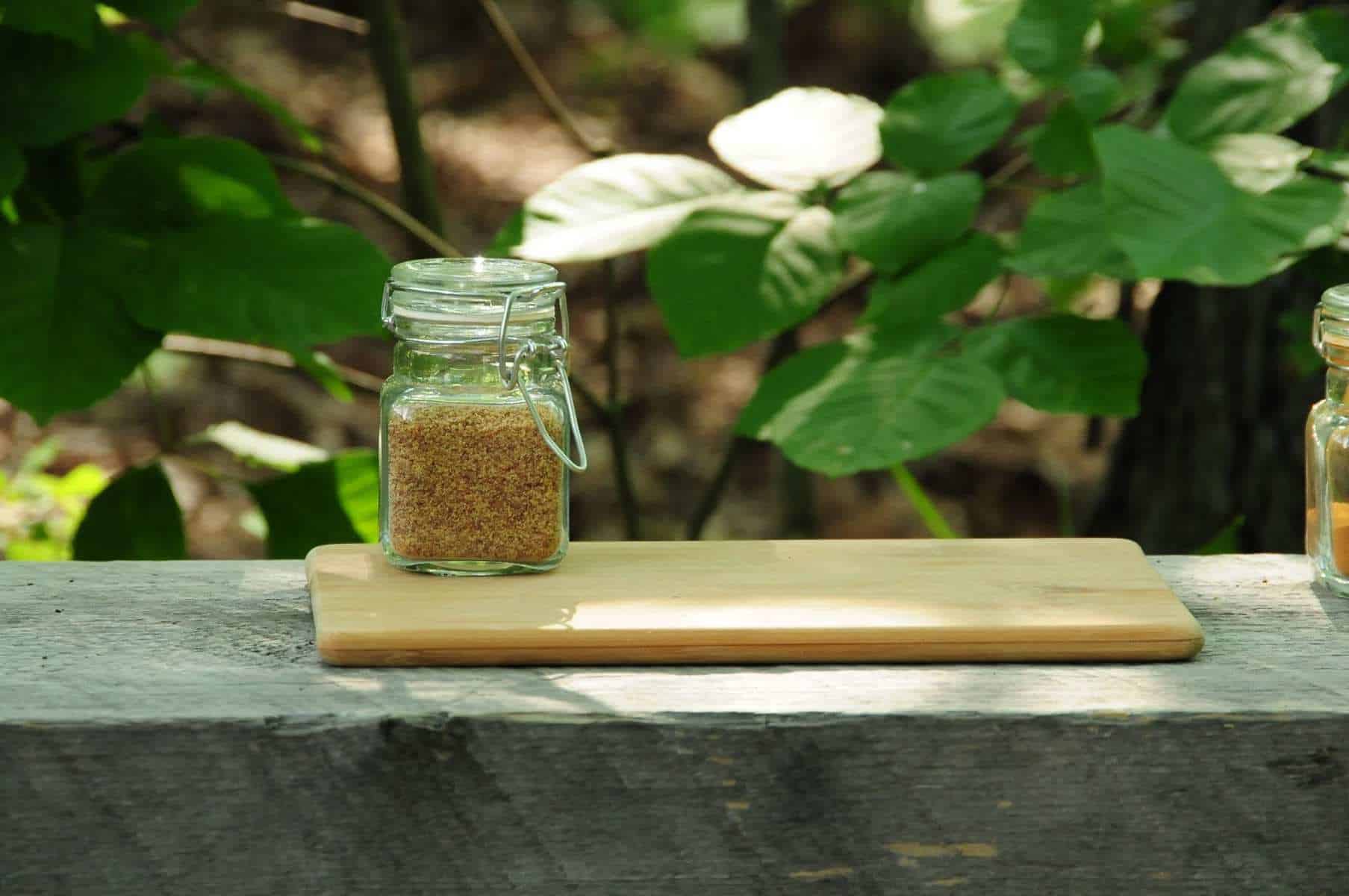 The Benefits of Flaxseed
The Benefits of Flaxseed
Hormone Regulation, Digestive Health, Strengthen Immunity, Regulate Detoxification and Inflammation
What Flaxseeds Contain and What Conditions They Affect
- Flaxseeds are the #1 dietary source of a compound called lignans and a rich source of polyphenols
- Lignans act as 1) phytoestrogens which help regulate estrogen levels in our bodies (important for hormone-related cancers such as breast and prostate), and are 2) beneficial fiber-like compounds which are important for digestive health (promotes motility and regularity) and immunity (the healthy bacteria in our colons use fibers for fuel – and these healthy bacteria are a part of our immune system)
- Lignans contain polyphenols which are antioxidants (also found in olive oil and berries) that protect our cells from damage and make our vascular system work more efficiently; polyphenols also support the liver by enhancing Phase 2 of the liver’s natural detoxification process
- Flaxseeds are also a rich source of the omega-3 fatty acid ALA and soluble fiber (important to cardiovascular health by decreasing LDL levels)
Is the Omega-3 Fatty Acids in Flaxseed the Same as Fish Oil?
No.
Flaxseeds contains the omega-3 called alpha-linolenic acid (ALA) and fish oil contains the omega-3 eicosapentaenoic acid (EPA). Our bodies can convert ALA to EPA, however, it is true that this isn’t a very efficient process. Fish, on the other hand, are very efficient at turning their plant sources of ALA (algae) into EPA in their bodies. We benefit from their efficiency by letting them do the work – then we consume their EPA rich oil.
ALA is beneficial for our bodies – it’s anti inflammatory, helps vascular functioning (which improves our blood pressure and reduces cancer risk) – so intake from flax is a good thing.
However, I still recommend getting EPA from consuming fish (especially small fish with low levels of mercury like sardines) 2-3 times per week (fish also contains brain-loving DHA). And, I prefer real fish intake to supplementation for general health (some conditions possibly benefit from higher intake). I personally only take fish oil on weeks fish didn’t make it onto my meal plan.
Recommended Intake of Flaxseed
- General, preventative health: the current rule of thumb is that 3 tablespoons per day of total nuts and seeds (including flax); this is the most flexible guideline and ensures that almonds, walnuts, pumpkin seeds, and other wonderful foods are consumed for a wide-range of benefits and is appropriate for most individuals (1 tbsp is roughly equivalent to the size of your 1/2 your thumb)
- To reduce risk to hormone-related cancers, LDL cholesterol, menopause symptoms, or to improve metabolic syndrome: 3-4 tablespoons of flaxseeds 5 times a week is the average dose that has been used in studies
- When to be cautious: consuming >4 tablespoons of flax per day should be discussed with a healthcare practitioner; this amount is considered a higher supplemental dose and could interfere with absorption of other medications and increase susceptibility to blood thinning; also, studies are limited in pregnant and breastfeeding women in doses larger than usually intake (when flax is consumed in as part of ~3 tbsp of total nuts & seeds)
- With children: children should also not exceeds intakes larger than usual intake; this means it can be sprinkled on their yogurt but don’t give 2-4 tablespoons per day
Does Flax Oil have the same Benefits as Flaxseeds?
No.
The hull of the seed is what contains the lignans (those wonderful compounds discussed above).
When to Grind and When to Keep Whole
Ground = benefits discussed above | Our digestive systems are no match for the strength of a flaxseed hull.
Whole = help with constipation | Because our digestive systems can’t break down the hull, whole flaxseeds become a source of insoluble fiber which helps keep things moving along our digestive systems. Insoluble fiber speeds things up, soluble fiber helps slow things down – together they create the perfect balance to keep everything on the right pace.
How to Purchase and Store Flaxseed – Keep it Whole and Cold!
The reason it is recommended to store flaxseed and and flax oil cold is because their omega-3 fatty acids are very susceptible to oxidation (going rancid). Oxidized oils are just as damaging to our systems as trans fats. Keeping them cold slows this process way down.
Keeping them whole until used also slows this down. The tough hull of flax beautifully protects these delicate oils inside, and it’s not until the hull is ‘cracked’ that oxidation speeds up.
I recommend buying whole and then storing in the freezer for up to 6 months. It’s ok to grind a larger amount at one time to make daily use more realistic, just be sure to store your freshly ground seeds in the freezer, too.
If you still prefer to buy your flaxseeds ground, please just be sure to store them in the freezer once you open the bag and look for cold-milled on the label as the method of processing.
And Finally….Can You Cook with Flaxseed?
I prefer not heating flax whenever possible, however, if enjoying it gently cooked increases consumption – then I see a benefit.
This is what to keep in mind. The oil in flaxseed has a smoke point of 225 degrees (this is the max temp an oil can reach before it begins breaking down in non-beneficial ways). My cautious nature recommends not exceeding this temp as often as possible (pancakes is a good example of when you could cook with them, but I wouldn’t bake in muffins at temps >300 degrees for a prolonged time >20 min).
With that being said, WHFoods.org does state that they reviewed articles that showed no harmful effects at 300 degrees. In either case, modest temps (200-300 degrees) do seem to be ok.
If you have additional questions I didn’t think of, please let me know!
Warmly,



Hi Teri, what about a ready to eat “Organic Flax Chia Blend”? The serving size is 2 T . I will put it in the freezer now after reading the above message (I’ve had it in the refrigerator).
Hi, Julie- You sure can use the Flax Chia blend. I answered a previous question from a member about the differences between flax, chia, and hemp seeds. I’ve posted it on the blog here when I saw your question, I think you might find the main differences helpful/interesting: https://www.benedictinewellness.com/differences-flax-chia-hemp/
Totally forgot that I used to put flax seed in my smoothies. Thanks for the reminder of the benefits of this potent little seed. Looks like it is time for me to re-organize my pantry and keep a recipe handy so that I can remember to put in this nutritional goodness. I also forgot that I would add spearmint to my smoothies. I did keep my flaxseed in the freezer but was not sure how long it will keep there. Is there an “expiration date” on flaxseed in the freezer?
Hi, 4-6 months in the freezer is my recommendation. Yes, keep your CARE recipe binder handy! The flax is also added to the breakfast blend recipe to provide our garnish of healthy fat which contributes to feeling full. Add those nutrients and benefits mentioned above and you enjoy a real purposeful fat in your meal (versus using full fat dairy). And the mint.. such a little spark plug that also aids digestion. Every ingredient has a purpose. That is culinary medicine. :)